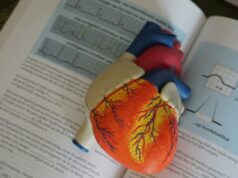
St Jude Medical has announced the first post-approval implant of its Nanostim leadless pacemaker in the UK. The device, which was implanted by Richard Schilling at St Bartholomew’s Hospital in London, is the world’s first retrievable leadless pacemaker and is less than 10% the size of a conventional pacemaker.
According to a press release, the Nanostim leadless pacemaker is designed to be placed directly in the heart without the visible surgical pocket, scar and insulated wires required for conventional pacemakers. Implanted via the femoral vein with a steerable catheter, the device offers a less-invasive approach for physicians compared to traditional pacemaker procedures that require more invasive surgery. The device is designed to be fully retrievable so that it can be readily repositioned throughout the implant procedure and later retrieved if necessary.
“Nanostim is one of the most significant advancements in cardiology and pacemaker technology,” said Schilling, consultant at Barts Health NHS Trust. “This miniaturised, minimally-invasive cardiac pacemaker offers my patients the potential for reduced complications like infection and aesthetic benefits over conventional pacemakers, in addition to quicker recovery times. We are delighted to have conducted the first implants of this ground-breaking technology at St Bartholomew’s Hospital in the UK.”
The press release reports that the Nanostim leadless pacemaker is less than 10% the size of a conventional pacemaker. The small size of the device and lack of a surgical pocket, coupled with the exclusion of a lead, improves patient comfort and can reduce complications, including device pocket-related infection and lead failure.
Initial results from the LEADLESS study, a prospective, single-arm, multicentre study evaluating patients with the Nanostim leadless pacemaker, were presented earlier this year and demonstrated overall device performance comparable to conventional pacemakers. Total implant procedure times averaged 28 minutes. Even with miniaturization, the device battery is expected to have an average lifespan of more than nine years at 100% pacing, or more than 13 years at 50% pacing.












